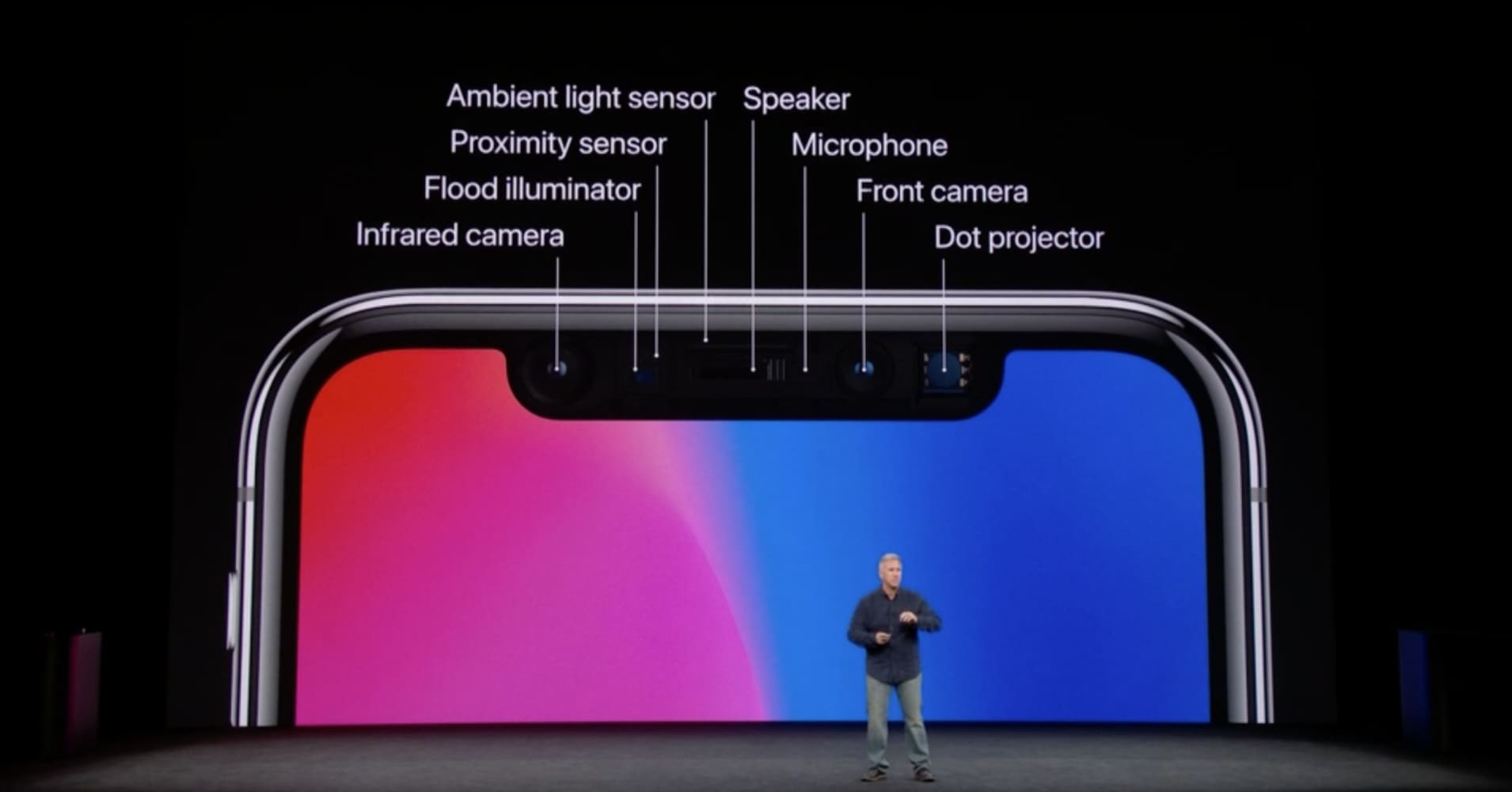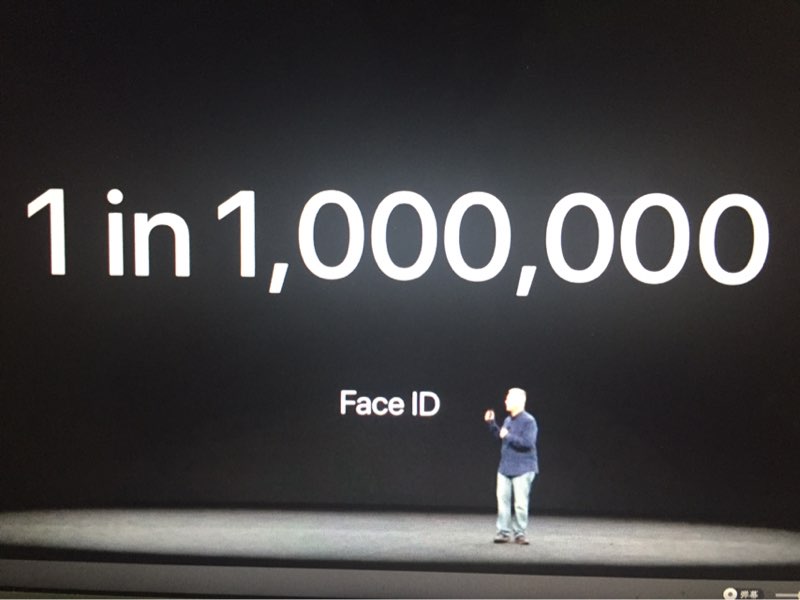Several reports have covered Apple's struggle to ensure significant component for the upcoming iPhone X can be produced in large enough quantities to meet demand, like 3D-Sensing modules that power Face ID. Bloomberg today reports that Apple overcame its production challenges by quietly telling suppliers they could reduce the accuracy of the face recognition technology to make the iPhone X easier to manufacture.
Apple is very demanding company with stringent tolerances and quality control; suppliers battle for these orders because Apple is such a behemoth the volumes are worthwhile. So in this case, it appears Apple had to be the one to pull back on its requirements. The report says the Infrared dot projector is very fragile, composed of a microscopic gallium arsenide laser and glass lens.
The fragility of the components reportedly created problems for Apple suppliers LG Innotek and Sharp. At one point, only about 20 percent of the dot projectors the two companies produced were usable, according to a person familiar with the manufacturing process. So these suppliers therefore slowed production in an effort to prevent breakages but lowered the required level of precision to compensate,
In response to the bottleneck, Bloomberg says ‘Apple relaxed some of the specifications for Face ID’ which made the parts easier to make and test. The report doesn't detail exactly how they changed the specification, and what impact that will have on the experience in terms of Face ID reliability and speed, a downgraded Face ID will probably still be far more accurate than the existing Touch ID.
KGI predicts Apple will have two to three million handsets available on launch day and 25 million to 30 million units for the holiday quarter, down from his previous forecast of 40 million. Pre-orders for the iPhone X begin this Friday, October 27 at 12:01 a.m. Pacific Time. Apple has said there will also be some stock of the smartphone in its retail locations on November 3, the official iPhone X launch day.
Update: A claim from Apple now says is "completely false" in a statement shared with TechCrunch. And the quality and the accuracy of Face ID have not changed, and Face ID will be the new "gold standard" for facial authentication.
Precision is key. If the microscopic components are off by even several microns, a fraction of a hair’s breadth, the technology might not work properly, according to people with knowledge of the situation.
The fragility of the components reportedly created problems for Apple suppliers LG Innotek and Sharp. At one point, only about 20 percent of the dot projectors the two companies produced were usable, according to a person familiar with the manufacturing process. So these suppliers therefore slowed production in an effort to prevent breakages but lowered the required level of precision to compensate,
In response to the bottleneck, Bloomberg says ‘Apple relaxed some of the specifications for Face ID’ which made the parts easier to make and test. The report doesn't detail exactly how they changed the specification, and what impact that will have on the experience in terms of Face ID reliability and speed, a downgraded Face ID will probably still be far more accurate than the existing Touch ID.
Update: A claim from Apple now says is "completely false" in a statement shared with TechCrunch. And the quality and the accuracy of Face ID have not changed, and Face ID will be the new "gold standard" for facial authentication.



إرسال تعليق